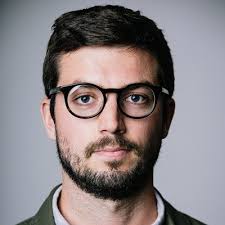If you’re interested in professional sport, there’s a good chance you’ll have heard or read the term ‘sportswashing’ an increasing amount over the last decade.
From football to golf, and Formula 1 to boxing, the incidents of globally recognised individuals, teams, competitions and events being linked with sportswashing are on the rise.
Cycling isn’t immune either. Teams, races and brands are all caught up in a web of financing and political influence. The sport has become a hotbed of investment from states looking to improve their image on the world stage.
A public relations exercise
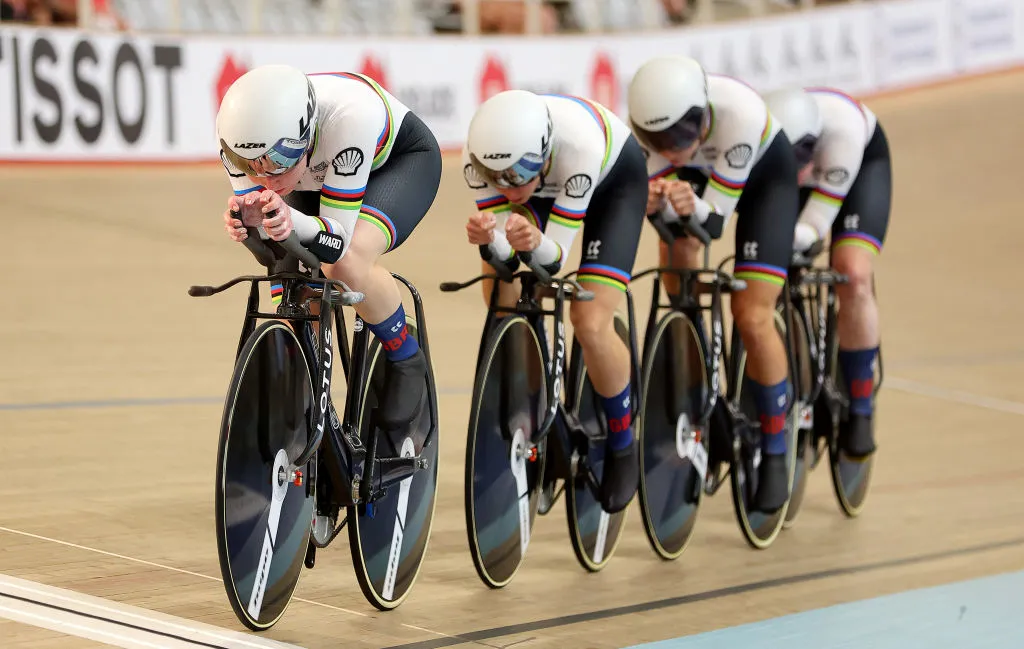
Sportswashing is typically described as a public relations exercise that uses sport to help improve the reputation of a government or state.
“It’s a very expensive process that a government or state can effectively use to pay and buy their way into sport and to use the reflected goodwill that comes with sport as a promotional tool for their regime, which is designed to counter the negative narratives about that country,” explains Felix Jakens, Amnesty International’s head of priority campaigns and individuals at risk.
“If a country has a really poor human rights record, or is trying to increase its prestige on the world stage, then sport is essentially for sale as a way of generating positive PR about that country, while not having to do any of the work to meaningfully undo the factors that are leading to the criticism in the first place,” says Jakens.
Political scientist Jiri Zakravsky, author of Cycling Diplomacy: Undemocratic Regimes and Professional Road Cycling Teams Sponsorship, says sportswashing has become a buzzword applied to the actions of oil companies and petrochemical businesses.
It is sometimes used in place of the term ‘greenwashing’, such as in criticising Ineos and TotalEnergies, who sponsor WorldTour teams and Shell, the sponsor of British Cycling.
But Zakravsky says this isn’t the correct usage of the term, according to the study of international relations. “[Sports washing] is closely connected with governments and governmental activities, especially in the context of human rights.”
The current state of sportswashing in cycling
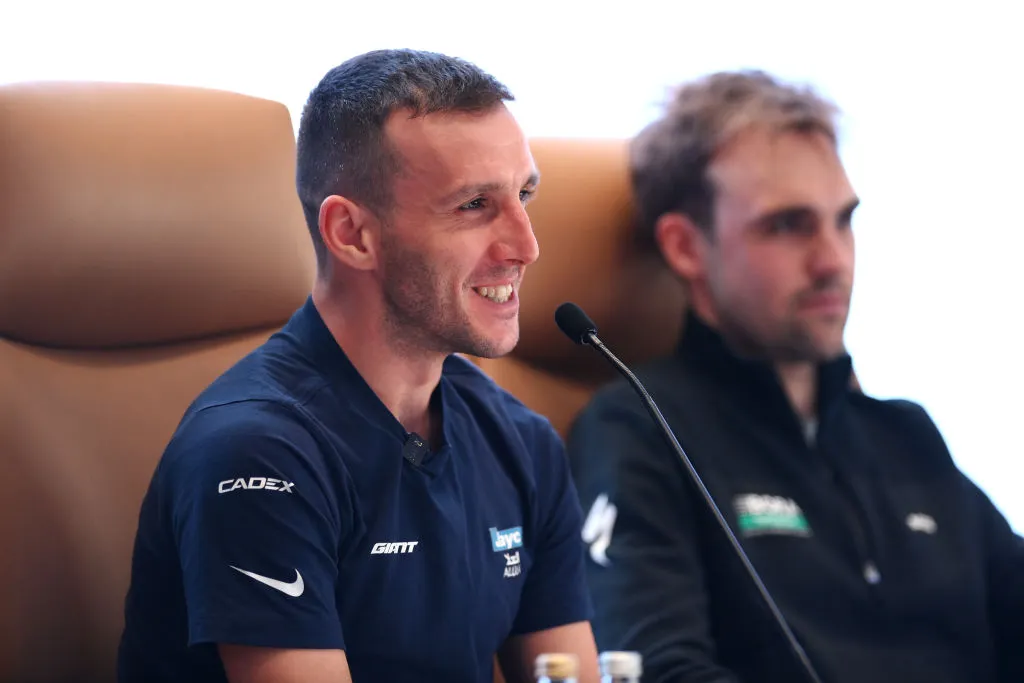
Four men’s WorldTour team sheet teams (Astana Qazaqstan, Bahrain Victorious, Jayco AlUla and UAE Team Emirates) receive money from states that could be seen to be using sport to counter negative narratives around their country. In the women’s WorldTour, the same could be said of UAE Team ADQ and Liv AlUla Jayco.
At the ProTour level, co-owner of the men’s ProTour team Israel-Premier Tech, Sylvan Adams, sees sport as a way to enhance the reputation of the country. One of the team’s former cyclists, the Israeli Guy Niv, has said every rider understands they are ambassadors for Israel.
In the women’s ProTour, Team Tashkent City, named after Uzbekistan’s capital, actively promotes the country, where Amnesty International says unlawful force has been used to suppress peaceful protest and consensual sexual relations between men remain criminalised.
The first example in the WorldTour was the establishment of Team Astana in 2007 in the wake of the Operación Puerto doping scandal. After sponsors abandoned Kazakh star Alexander Vinokourov’s team due to other riders’ ties to doping, a coalition of state-owned companies from Kazakhstan essentially stepped in to fill the void.
Sportswashing is not limited to the sponsorship of professional teams, though. It has been present at the pinnacle of the sport since 2016, when the UCI Road World Championships were hosted by Qatar, a country where same-sex relationships are illegal.
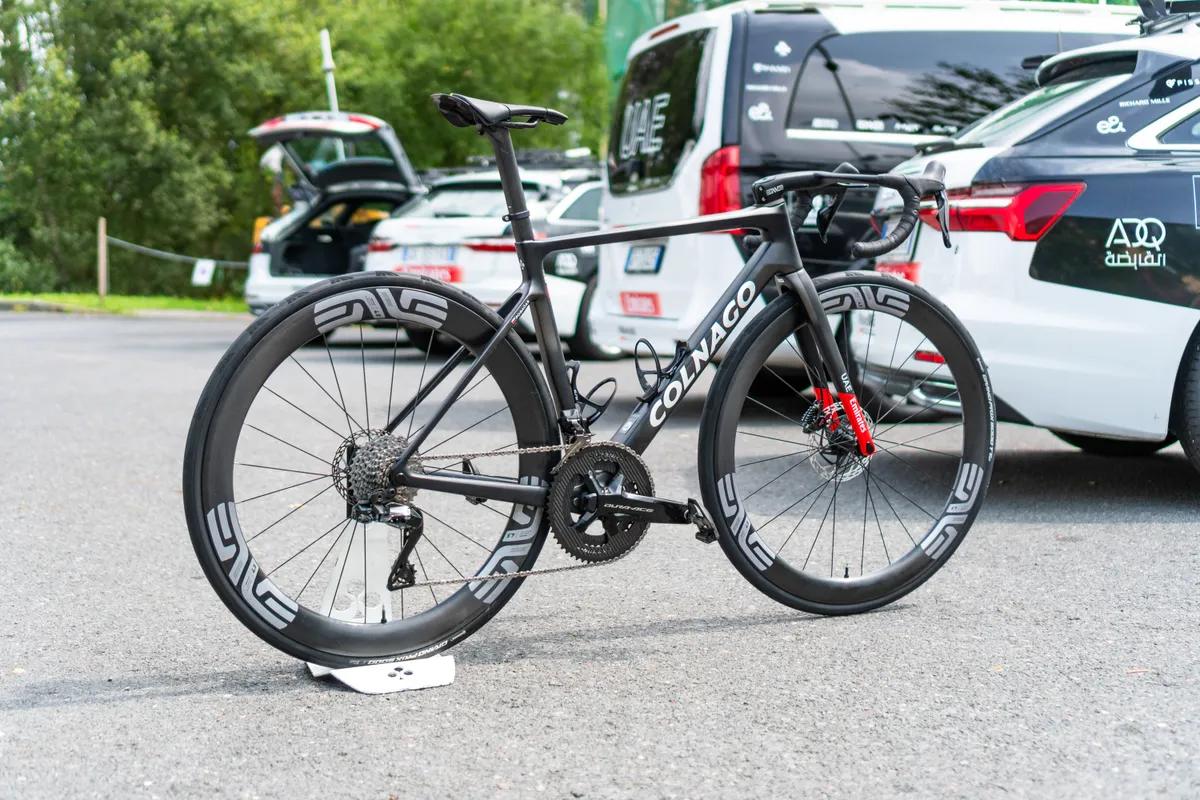
It’s set to continue this decade, too. The United Arab Emirates (UAE), where political parties are banned and freedom of expression and assembly is curtailed, is set to host the 2028 UCI Road and 2029 UCI Track World Championships, while a Saudi-backed ‘Champions League’ of cycling is reportedly edging closer.
Elsewhere, Simon Yates has won the AlUla Tour in Saudi Arabia – where public executions are still carried out and individuals have been imprisoned after “grossly unfair trials for their peaceful expression”, according to Amnesty International – while the men’s UAE Tour started on 19 February.
These states are also investing in cycling away from professional road racing. The host of the next three UCI Indoor Cycling World Championships, MyWhoosh, has investors including the asset-holding company IHC Group. The legendary Italian bike manufacturer Colnago was acquired by Chimera Investments LLC in 2020. Both IHC Group and Chimera Investments LLC are subsidiaries of Royal Group, a conglomerate with links to the UAE royal family.
A small amount of money
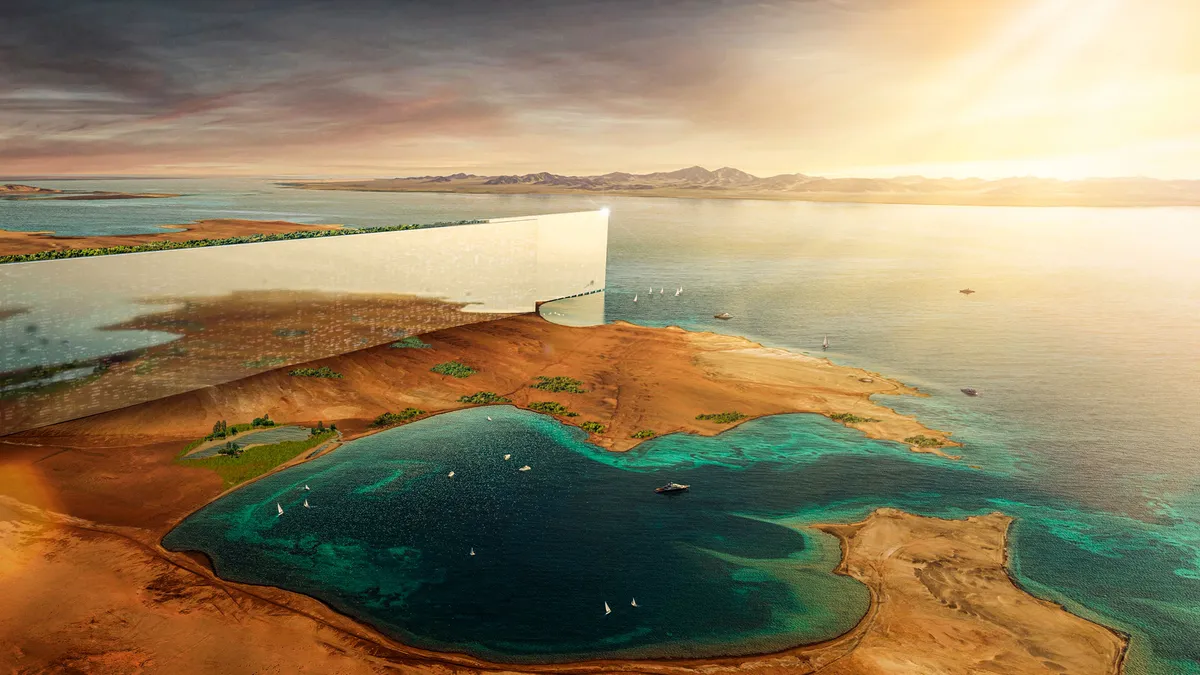
There are several reasons why certain countries are investing in sports including cycling.
“These are countries whose economies are entirely dependent on fossil fuel exports,” says Jakens of Amnesty International. “The oil will eventually run out, so I think both Mohamed bin Zayed and Mohammed bin Salman – the respective Crown Princes of UAE and Saudi – decided they wanted to start diversifying and establishing their position in the society of states internationally.
“One big part of that is ‘how do you increase their reputation as a place to go on holiday and a place to work?'”
Jakens says buying into sports is one way to gain attention, but it’s important to see the wider context of other investments.
“Saudi is building Neom – the city in the desert – which is intended to be their Dubai; a big holiday destination, with more liberal laws,” he says, and points out Saudi’s investment in X and Uber, as well as its investment in capital projects internationally.
But why cycling specifically? Aside from the Tour de France and the Olympics, the sport doesn’t cut through to mainstream audiences in most countries, especially in comparison to the other targets of investment. However, the sport could be perceived as offering value for money for sponsors.
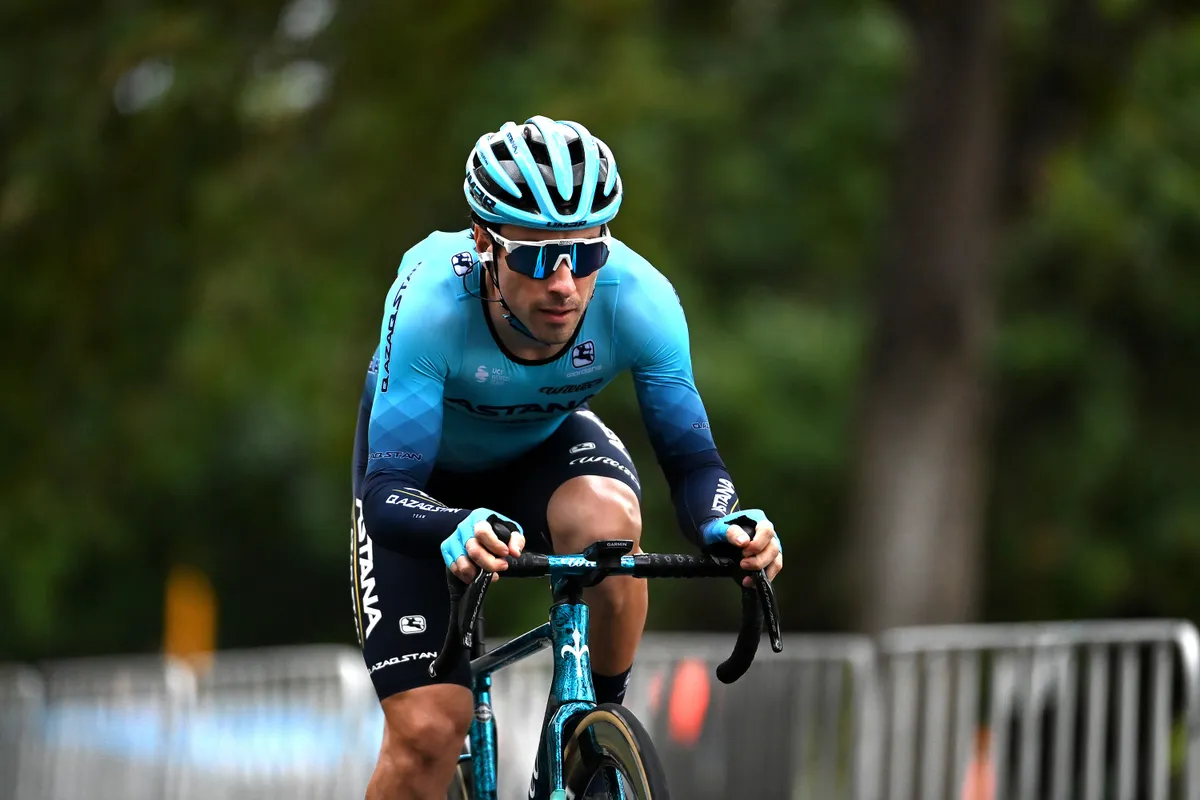
“When we compare professional cycling with other sports, it's just a small amount of money that you need to be seen,” explains Zakravsky.
He references research that found all 40 professional cycling teams had a combined budget of €321 million in 2012. This was just 60 per cent of the budget of FC Barcelona (€509 million) for the 2013/14 football (soccer) season, while the top 75 NBA players could each afford to fund an entire WorldTour team with their salaries.
The sponsorship of a cycling team also extends beyond being a team’s silent backer. “If you want to sponsor Arsenal FC, the name of the club is still Arsenal FC,” says Zakravsky. “However, when you have your own professional cycling team, you can choose nearly everything – the colour of the jersey, its name.”
Every time riders from teams sponsored by the likes of UAE, Bahrain and Astana are captured on a television broadcast, or a commentator is talking about one of their riders, the name of the sponsoring country or city is repeatedly given coverage, which over time can lead to a positive image.
“[International relations researcher] Simon Anholt’s theory of nation branding shows that ordinary people have the capacity to know quite a lot of information about 10-15 countries,” says Zakravsky.
“What we know about [the rest] is something that we get from stereotypes and so on. It means that our knowledge could be based only on how some country wants to promote itself in international relations.
“Activities like sportswashing definitely fit this idea. If you know nothing about the country and the only issue that you connected with that is cycling, and you love cycling, it means it must be a good country."
Unlike other sports, where teams can generate revenue through ticket sales or demand large amounts for broadcast rights, a professional cycling team relies heavily on sponsors to survive. Given the peloton’s recent history of doping scandals, Zakravsky believes a lot of companies are wary of putting their name to a sport where their reputation could be dragged into a PR nightmare.
States and governments, meanwhile, offer a more sustainable, long-term opportunity. When the decision is between accepting money from a source with a poor human rights record or folding, team managers may feel they have little choice.
Globalising the sport
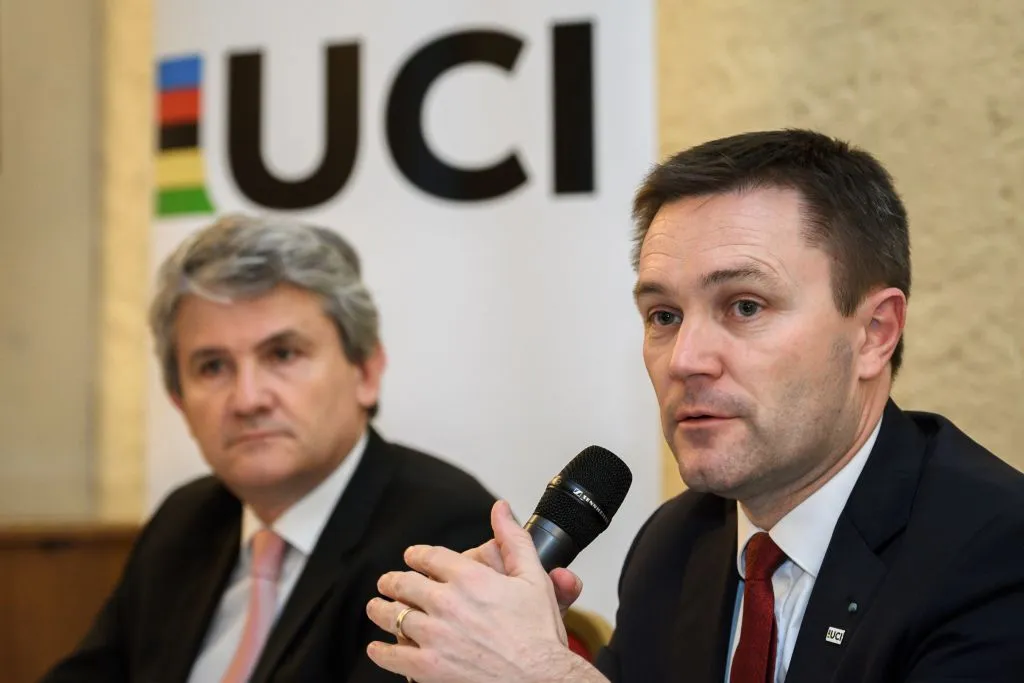
All of this coincides with the UCI’s goal of globalising cycling and growing the sport in countries that aren't typical cycling destinations.
“All international sports federations have focused in the last few years on the globalisation of their sports,” says Zakravsky. “If you want to globalise your sport, you have to move your activity at least to a few destinations where there is no tradition [of the sport]”.
Abu Dhabi, the capital of the UAE, is set to host numerous World Championships across a variety of cycling disciplines before the end of the decade.
Speaking to BikeRadar, UCI president David Lappartient says its closer relationship with the UAE resulted from the country “pushing so hard to develop cycling”.
“It’s not all about having a [WorldTour] team. It’s about cycling as a way of life – you see people riding a bike here, and all the facilities and infrastructure,” he adds.
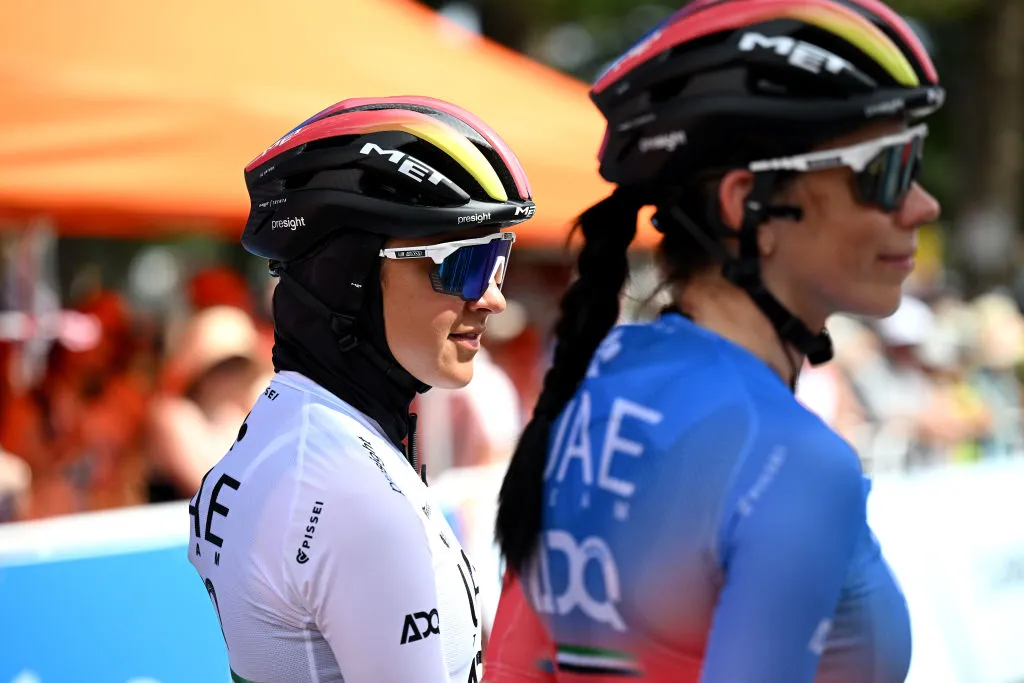
Lappartient pointed to the UAE’s long-term strategy of promoting sport and cycling for women, which includes women-only sessions at regular track sessions, such as those held at the city’s Yas Marina Circuit. It’s already bearing fruit, too – UAE Team ADQ’s Safiya Al Sayegh became the first Emirati rider in the Women’s WorldTour peloton in October 2023.
Lappartient also tried to reassure any LGBTQ fans who might have fears about travelling to the various UCI World Championship events in the UAE, adding that any kind of discrimination is forbidden as part of the UCI’s constitution, which any host nation has to respect.
“We're completely sure that whoever wants to come here will be more than welcome and this is something we discussed with them and they will not interfere with our choice,” says Lappartient. “Everybody is welcoming this in [the UAE], so that's what is great.”
Real investment in the UAE
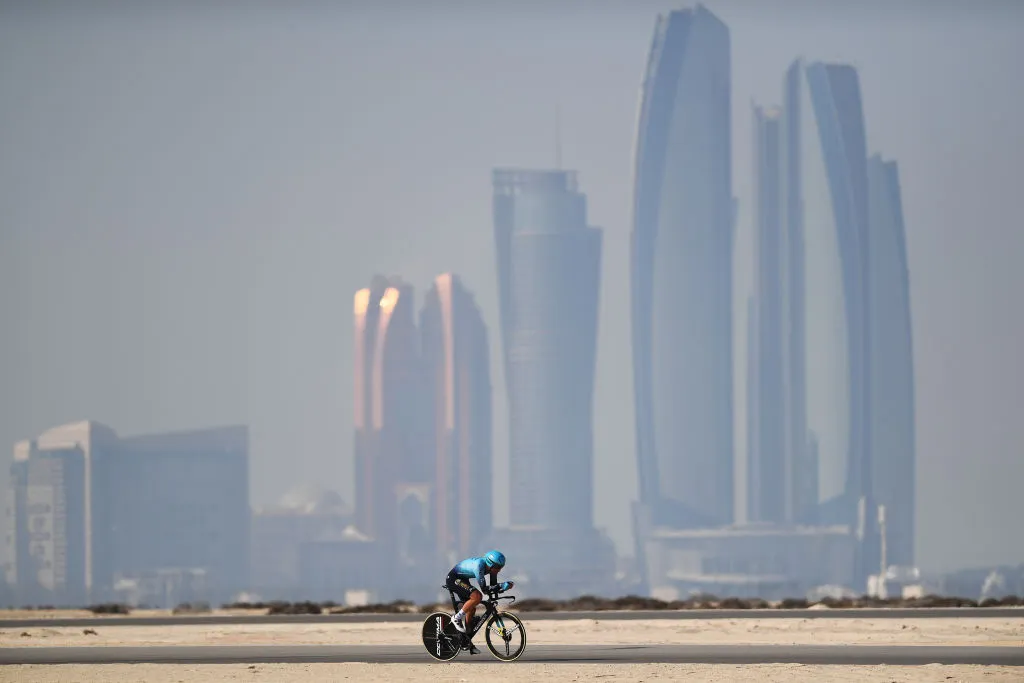
Having spent a few days in the country in January 2024 as part of a press trip launching the UCI and MyWhoosh’s UCI Indoor Cycling World Championships partnership, it’s clear there is real investment in cycling infrastructure in the UAE and, in particular, Abu Dhabi.
There are segregated bike lanes and tracks to a cycling complex with a World Championship-worthy velodrome, set for completion in 2025. Is it all a facade to woo new visitors and cycling’s governing body, and take attention away from the country’s human rights record, or is it a genuine attempt to tee up a new, cycling future?
Listening to Akhtar Saeed Hashmi, CEO of MyWhoosh, it would appear to be the latter.
He says MyWhoosh wants to “give back to the industry”. “We have a group of private investors and all of them are very much into the cycling industry and want to serve the community rather than generate income out of it,” he adds.
Hashmi says the plan is to keep MyWhoosh free for the foreseeable future, with the platform monetised through in-game advertising from sponsors.
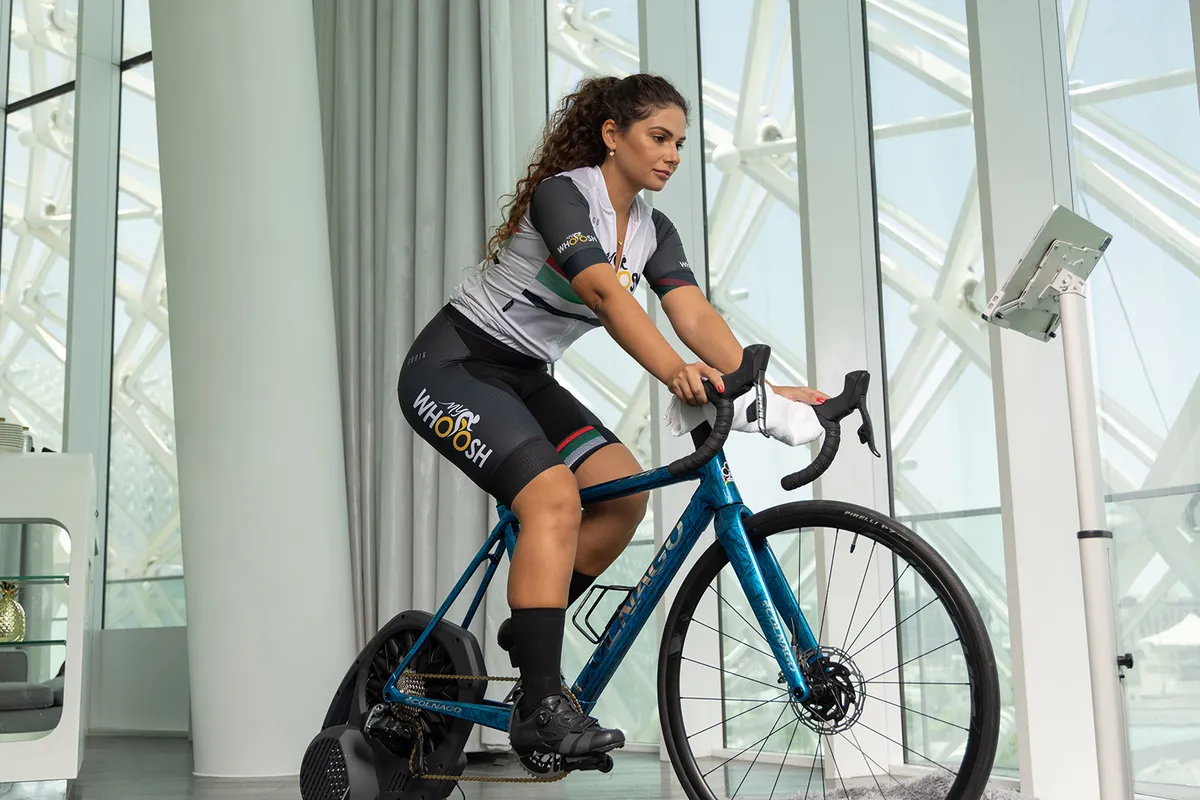
Cycling needs investment and a sustainable future, but Jakens says Amnesty International’s position won’t change, regardless of how much is invested in the sport, be it at a local or global level.
“What we're interested in is whether or not they're improving their human rights record,” he says.
While democracy, political and human rights non-profit Freedom House reports that the UAE is “improving”, the country is still ranked as one of the least free places in the world, with a score of 18/100.
Despite this, Dubai already welcomes more than a million Brits per year. With the UAE’s relentless funding of infrastructure and facilities across the Emirates, and a relaxing of rules surrounding alcohol designed to appeal to new visitors, this number is likely to grow, despite Freedom House’s analysis.
Minimal backlash
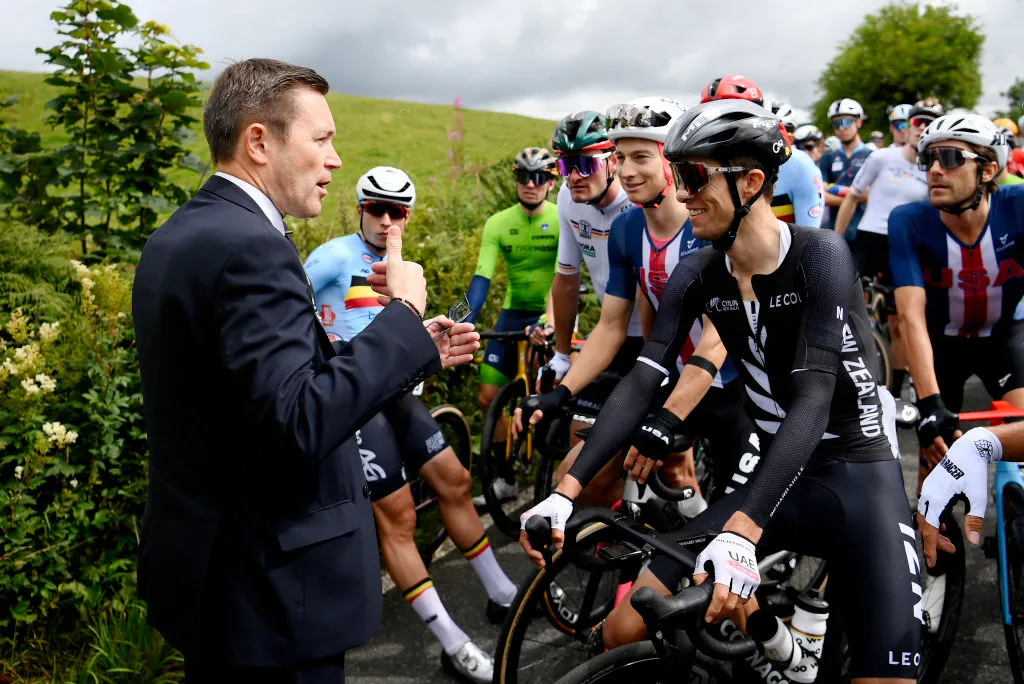
Unlike the protests seen against the involvement of petrochemical companies in cycling, such as those at the 2023 UCI Road World Championships in Glasgow, Extinction Rebellion’s protests at the Tour Down Under or the backlash against Shell’s sponsorship of British Cycling, there hasn’t been a significant reflection of the growing influence of states with questionable human rights records.
“There was only one protest when Bahrain-Merida was [founded],” says Zakravsky, when UK-based campaign groups protested about the alleged involvement of the team’s founder, Sheikh Nasser bin Hamad Al-Khalifa, in quashing the 2011 Arab uprising in Bahrain.
“After a few months, nobody discussed it,” Zakravsky adds. “In 2017, it was the first Giro d'Italia for Bahrain-Merida. Sheikh Nasser was part of the team for a few stages, and nobody cared that he was there.”
Zakravsky adds that the lack of criticism could be linked to where a team is based, and the reaction of the local population and press.
He suggests that if a team came from the UK, it could spark discussion. However, Bahrain-Merida’s Italian base could have been a factor in the lack of debate: “Maybe it wasn’t a big issue for them,” adds Zakravsky.
What does the future hold?
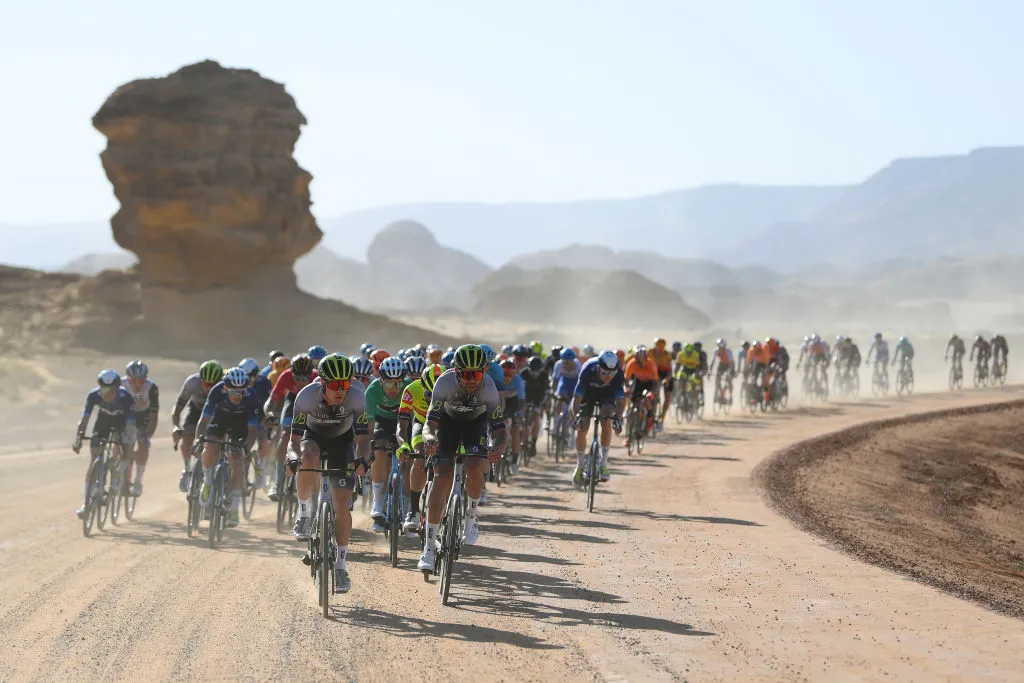
If the last decade is anything to go by, cycling’s relationship with alleged acts of sportswashing is only set to go in one direction, according to Zakravsky.
“Due to the lack of criticism, there will be more activity,” he says, and points to the mooted Saudi-backed cycling Champions League as an example. “I don't have a crystal ball, however, it could fit the national vision of Saudi Arabia.”
The vision he refers to is Vision 2030, a widespread investment programme that is a key pillar of Saudi Arabia’s attempts to diversify away from oil. Part of Vision 2030 is the continued investment in sport, which includes a bid to host the 2034 football World Cup (the country is currently the sole bidder), and, according to an interview with the Telegraph in 2022, a potential bid for the 2036 Olympics.
Given the lack of criticism and the reliance of professional cycling teams on sponsors for funding, relationships between the sport and states with questionable human rights records are likely to deepen.
Jakens, however, takes a nuanced approach to a question posed about what can be done.
“[Amnesty] doesn't advocate boycotts – people's careers are short, sporting bodies need money, they're strapped for cash. But be aware of what's happening,” he says. “The thing we would ask is to speak out because, if this is a PR process, and we think it is, the best thing you can do is counter that by calling it out.”
For everyday fans, Jakens recommends they educate themselves about the situation. “Go away and read Amnesty or Human Rights Watch's reports that detail exactly the conditions that people are living in,” he says.
